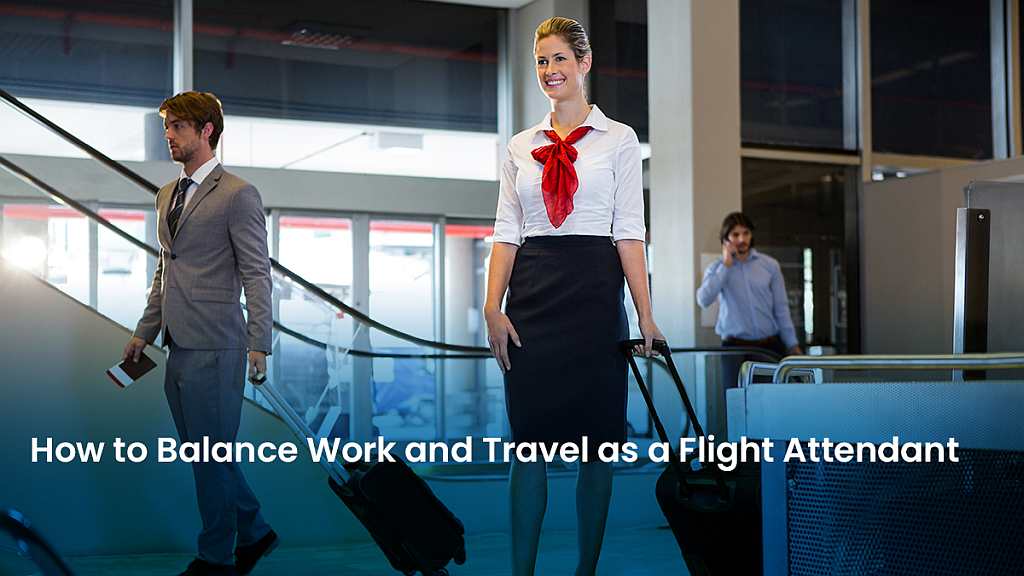- Aside from visiting the world’s best wonders as one of the exciting perks you can have as a flight attendant, having a flexible work schedule adds to maintaining a balanced lifestyle.
- Knowing the pros and cons of working as a cabin crew member is equally important to check if you are fit and manage your lifestyle.
- Flying from time to time can be exciting but too much time away from home can take a toll on your mental health. So, make sure to stay connected with your loved ones online.
- Enrolling in flight attendant schools like Eton College can better equip you with the best ways to navigate a flight attendant life.
Living the flight attendant life may seem glamorous–the sleek uniform, well-groomed hair and make-up, the posture and the attitude, the smile, and endless travel around the world. But alongside these perks comes the intentionality to balance everything all at once. It is one of the most exciting and rewarding careers you can pursue but it is also a demanding one.
Imagine eating a croissant in front of the Eiffel Tower in Paris, having breakfast at Tiffany’s kind of life in NY streets, or exploring cultures in Japan. Sounds exciting, right? But there are also long-haul flights, standing for hours, layovers, delays, emergencies on board, and lots of dealings with diverse passengers. But how do flight attendants manage their time while traveling the world and maintaining a balanced lifestyle?
Understanding the Flight Attendant Schedule
One of the biggest perks of being a flight attendant is the flexible work schedule. Unlike a typical 9-to-5 job, flight attendants work in shifts that vary depending on airline routes and layovers. While there is no average working hours for flight attendants, you can expect to spend 65 to 90 hours in the air monthly. Some flights allow for longer stays in certain cities, while others have quick turnarounds. Understanding your schedule is the first step in maintaining balance.
Prioritize Rest and Recovery
Jet lag and irregular sleep patterns can take a toll on your body. Sticking to a sleep routine whenever possible helps maintain energy levels, even when crossing time zones. Staying hydrated and eating nutritious meals are also crucial to keeping up with the demands of the job. Power naps during long-haul flights can be a lifesaver, ensuring you remain refreshed and ready for your next destination.
Plan Your Free Time Wisely
Flight attendants often have layovers in exciting destinations, and making the most of these moments is key to a fulfilling career. Researching your destination in advance allows you to find quick yet enjoyable activities.
Exploring local cafés, parks, or famous landmarks instead of trying to cram in too much helps you experience the culture without feeling rushed. Keeping a travel journal is a great way to document these unique experiences and memories.
Stay Connected with Loved Ones
Being away from family and friends for extended periods can be tough, but modern technology makes it easier than ever to stay in touch. Scheduling video calls or sending quick messages between flights keeps relationships strong.
Sharing photos and travel updates lets loved ones be a part of your journey. Planning vacations with friends or family during your time off also helps make up for the time spent away.
Budgeting for Travel and Expenses
While traveling as part of your job is an incredible perk, personal trips and daily expenses still require careful financial planning. Setting aside a portion of your salary for personal travel ensures you can explore destinations on your own terms.
Taking advantage of airline perks such as discounted or standby tickets helps save money while enjoying new places. Finding budget-friendly accommodations and dining options can make your adventures even more affordable.
Maintain a Healthy Work-Life Balance
A successful flight attendant career isn’t just about travel—it’s also about maintaining a fulfilling personal life. Setting boundaries between work and personal time helps prevent burnout. Engaging in self-care activities like exercising, meditating, or reading during downtime improves overall well-being. Pursuing hobbies or side projects outside of work keeps life balanced and enjoyable, even when constantly on the move.
Understanding the Challenges
While the life of a flight attendant is exciting, it comes with its own set of challenges. The cabin crew’s pros and cons include the thrill of meeting new people, enjoying flexible schedules, and experiencing diverse cultures. However, irregular sleep patterns, long hours on your feet, and time away from family are real concerns.
Dealing with occasional difficult passengers is also part of the job. Acknowledging these challenges and developing strategies to handle them can make a significant difference in career satisfaction.
How Eton College Prepares You for This Lifestyle
If you’re dreaming of a career that lets you travel the world, Eton College’s Flight Attendant Preparation Program equips you with the skills you need to succeed. The program focuses on key areas such as time management, customer service, and cultural awareness—crucial elements for balancing work and travel.
Certifications like First Aid and CPR/AED ensure you’re prepared to confidently handle in-flight emergencies. Real-world experiences, including airport visits, provide valuable insights into the aviation industry, giving you a head start in your journey. With Eton College, you’ll be well-prepared to manage the demands of a flight attendant career while enjoying its many rewards.
Ready to take off?
Working as a flight attendant is one of the most demanding yet rewarding careers you can explore. That’s why having a work-life balance must be done intentionally not just to avoid burnout but to be most effective at work. Balancing work and travel as a flight attendant requires planning, self-care, and adaptability. You can enjoy a fulfilling and exciting career by prioritizing rest, managing finances, and making the most of your layovers.
Where does it all start? Getting the right knowledge to begin with. One of the best decisions you can make is to enroll in a specialized flight attendant preparation program like Eton College. It provides the essential training to help you navigate this lifestyle with confidence, ensuring that your journey in aviation is both rewarding and sustainable.
FAQs
Q: How do flight attendants manage their work-life balance?
A: Flight attendants balance their schedules by prioritizing rest, planning layovers wisely, and maintaining strong connections with family and friends.
Q: What are some tips for making the most of layovers?
A: Research your destination, explore nearby attractions, and enjoy local experiences without overloading your schedule.
Q: Does Eton College prepare students for the challenges of a flight attendant career?
A: Yes! Eton College provides hands-on training, certifications, and real-world experiences to help students succeed in aviation.
Q: Is being a flight attendant a stressful job?
A: While it can be demanding due to long hours and time zone changes, proper self-care and time management make it a rewarding career.
Q: What are the perks of being a flight attendant?
A: The biggest perks include free or discounted travel, meeting new people, and experiencing different cultures around the world.
By learning how to balance work and travel, you can enjoy all the benefits of being a flight attendant while ensuring personal well-being. Ready to take off on this exciting journey? Eton College is here to help you make it happen!




